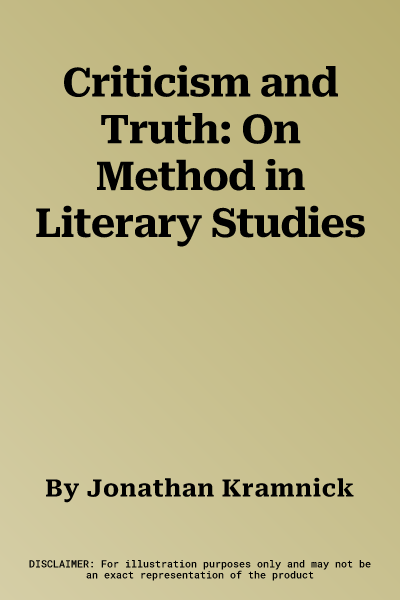A defense and celebration of the discipline of literary studies and
its most distinctive practice--close reading.
Does literary criticism offer truths about the world? In this book,
Jonathan Kramnick explains literary criticism's distinctive approach to
knowledge and its disciplinary rationale by zeroing in on its singular
method: close reading. Close reading is the field's way of pursuing
arguments and advancing knowledge--the crucial craft and skill that it
imparts to students. For Kramnick, close reading is also a creative,
transformative, and immersive writing practice that fosters a unique
kind of ecologically-minded engagement with the world. Drawing on recent
examples of literary criticism, Kramnick unpacks the art of in-text
quotations and other reading methods, advocating for them as a valuable
form of humanistic expertise worthy of a prominent place within a
multi-disciplinary university.
As the humanities fight for survival in contemporary higher education,
the study of literature doesn't need more plans for reform. Rather, it
needs a defense of the work already being done and an account of why it
should flourish. This is what Criticism and Truth offers, in vivid and
portable form.

